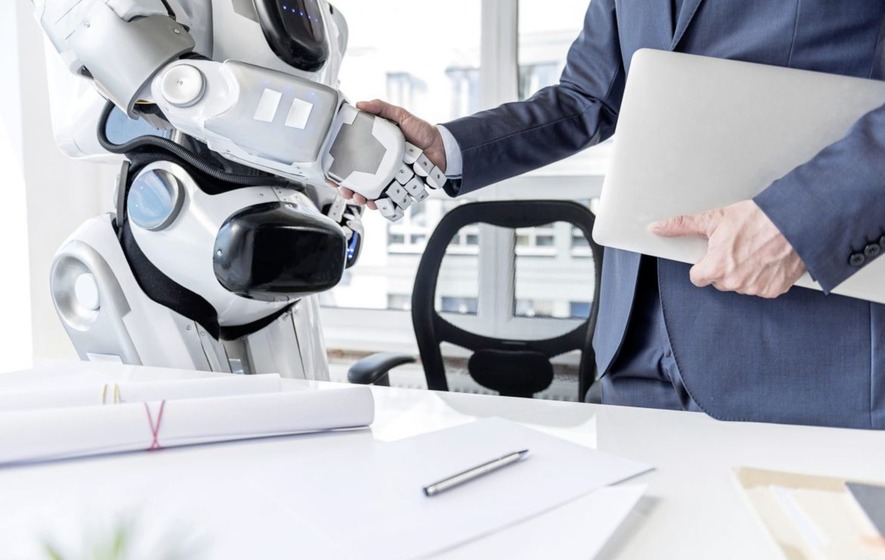The Robots Are Coming – But Humans Still Have Upper Hand
AS artificial intelligence (AI) becomes more sophisticated and its ability to perform human tasks accelerates with the advances in machine learning, we’re just beginning to realise what part we as humans will still have to play, in the future.
From the tools invented during the stone age like an axe or spear, to the first Gutenberg printing press, mankind has used technology to reduce or even eliminates physical and mental effort. However that doesn’t make it easy for those whose jobs are affected by the imposed changes. In some cases it causes staff to be considerably uncomfortable.
The thought process until now has been to develop technology to handle specific routine tasks. A human need is highlighted, is broken down into simplified tasks, and then a way to automate these tasks are determined and refined. Advances in AI and its ability to evaluate, select, act, and learn from its actions independently can be somewhat self-sustaining.
AI is going to do far more than eliminate repetitive manual jobs like warehouse picking. Any job that involves routine problem-solving within existing processes and knowledge is ripe for handing over to a machine. Indeed, jobs like customer service, travel planning, medical diagnostics, stock trading, and even clothing design are already increasingly automated.
As for more complex problem-solving, we used to think it would take computers decades or even centuries to catch up to the nimble human mind, but we seem to have seriously underestimated the exponential explosion of deep learning by computers.
So how do we as human beings maintain an economic worth in a world that AI will no doubt keep getting better than us, at doing more things?
In the back of our minds is – “at what point do computers become more intelligent than us”.
But we can put our minds at ease as a result of us being “wonderfully made”. As humans we are driven to push past boundaries, to try new things, to build something worthwhile, and to make a difference. We have strong instincts to explore and enjoy novelty and risk.
AI is brilliant at automating routine work and generating new insights from existing data – which is the key ingredient. What it can’t do, is deduce the existence, or even the possibility, of information it isn’t already aware of. It can’t imagine that radical new products or business model.
AI doesn’t even have common sense, although in my experience, not all humans have that attribute either! It doesn’t have the ability to be creative, have an imagination, leadership qualities or have a sense of humour. A robot doesn’t know that water is wet or that strings can pull but not push.
Some university professors and academics now suggest we rewrite our education curriculum to nurture the critical skills of passion, curiosity, imagination, critical thinking, and persistence.
Perhaps in the future we will teach our children, among other things, to communicate, ask questions, solve problems with creativity, empathy, and ethics, and accept failure as an opportunity to try again.
These concepts aren’t necessarily new, but increasing automation and digitisation make them newly relevant, and indeed urgent to keep ahead of not just machines, but also our competition in the industrial world.
:: Trevor Bingham (editorial@itfuel.com) is business relationship manager at ItFuel in Craigavon. Follow them on Twitter @itfuel.
Source: irishnews.com




